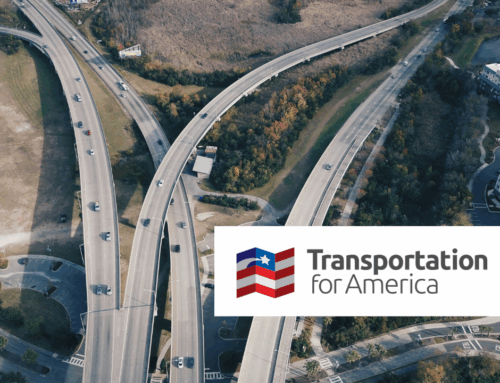|
July 30, 2013 Dear Representative: As you consider H.R. 2610, the Transportation, Housing and Urban Development, and Related Agencies Appropriations bill for fiscal year (FY) 2014, Taxpayers for Common Sense urges you to support the McClintock-Bridenstine-Hudson amendment that would eliminate the discretionary funding for the Essential Air Service program and save taxpayers $100 million in the process. Despite reforms in last year’s Federal Aviation Administration (FAA) reauthorization bill, the cost of the EAS program continues to escalate. Those reforms have resulted in the removal of just three airports from the program, but the costs of administering the program are higher than ever. Although the House bill would reduce discretionary funding for the program compared to last year’s level, a marked increase in available mandatory funding would, in total, increase the program’s funding by nearly 18-percent year-over-year. The EAS program was intended to be a temporary, ten-year bridge for small airports to adjust to life after airline deregulation in the 1980s, and has clearly outgrown its original intent. The program benefits just a lucky few who fly into and out of the subsidized airports. All taxpayers – even those who can derive no benefit from the subsidized service – are paying for this program. Meanwhile, the costs of administering the program are clearly outstripping the very modest savings from removing a few airports. The cost of the program in Montana, for example, is likely to be higher or decrease only slightly when a new carrier is approved shortly, even though there are two less airports receiving EAS subsidized service. In FY 2008, the EAS program cost taxpayers $110 million. Just six years later, the cost of the program compared to the FY 2014 House level will have nearly doubled. It is obvious that the reforms are not having the intended impact of reducing the cost of the program, and more dramatic action needs to be taken. For this reason, we urge you to support the McClintock-Bridenstine-Hudson amendment. This amendment would not eliminate the program entirely – mandatory funds would still be available – but would cut the program down to a more manageable size and force the FAA to more carefully prioritize which airports should continue to receive subsidies. This would be in line with the intention of the authorizers and provide welcome relief for American taxpayers. For more information please contact me or Erich Zimmermann on my staff at 202-546-8500 or erich@taxpayer.net. Sincerely, Ryan Alexander |











